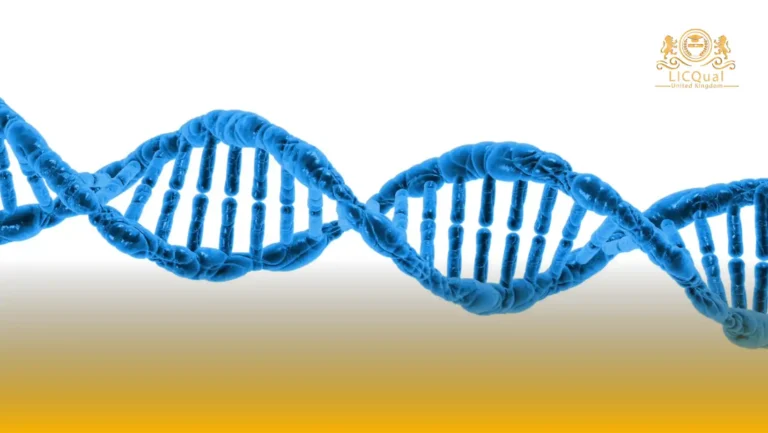The LICQual Level 3 Certificate in Infectious Diseases (Cert ID) is a specialised qualification designed for healthcare professionals seeking to enhance their knowledge and expertise in the prevention, management, and control of infectious diseases. This course is ideal for learners who wish to advance their career prospects, strengthen their Continuing Professional Development (CPD) profile, and gain a comprehensive understanding of infectious disease principles, epidemiology, and clinical management.
This qualification is specifically intended for experienced healthcare practitioners rather than beginners. It is particularly suitable for nurses, clinical practitioners, allied health professionals, and laboratory staff who aim to develop advanced skills in identifying, preventing, and managing infectious diseases. Learners will gain practical knowledge in infection control, diagnostic approaches, outbreak response, and evidence-based interventions to improve patient safety and public health outcomes.
Centres delivering the LICQual Level 3 Certificate in Infectious Diseases must meet rigorous quality standards to ensure learner success. This includes employing competent and qualified staff, providing access to all necessary learning materials, and offering appropriate facilities for both theoretical and practical training. By combining expert instruction with structured, hands-on learning opportunities, centres create a supportive environment that fosters professional growth, skill development, and confidence in managing infectious diseases.
Whether your goal is to specialise in infection control, enhance clinical decision-making, or expand your professional knowledge, the LICQual Level 3 Certificate in Infectious Diseases provides a structured and practical pathway to achieving your career objectives in healthcare and public health.
Course Overview
Qualification Title
LICQual Level 3 Certificate in Infectious Diseases (Cert ID)
Total Units
6
Total Credits
24
GLH
120
Qualification #
LICQ2200835
Qualification Specification
To enroll in the LICQual Level 3 Certificate in Infectious Diseases (Cert ID), applicants must meet the following criteria:
|
Qualification# |
Unit Title |
Credits |
GLH |
|---|---|---|---|
|
LICQ2200835-1 |
Introduction to Infectious Diseases |
4 |
20 |
|
LICQ2200835-2 |
Microbiology and Pathophysiology |
4 |
20 |
|
LICQ2200835-3 |
Prevention and Control of Infectious Diseases |
4 |
20 |
|
LICQ2200835-4 |
Diagnosis and Treatment of Infectious Diseases |
4 |
20 |
|
LICQ2200835-5 |
Epidemiology, Surveillance, and Reporting |
4 |
20 |
|
LICQ2200835-6 |
Public Health, Ethics, and Policy in Infectious Diseases |
4 |
20 |
By the end of this course, learners will be able to:
Unit 1: Introduction to Infectious Diseases
By the end of this unit, learners will be able to:
- Explain the classification of infectious diseases including bacterial, viral, fungal, and parasitic infections.
- Identify routes of transmission and their impact on community and global health.
- Recognize emerging and re-emerging infectious diseases and their significance in public health.
- Assess the global burden of infectious diseases and their effect on healthcare systems.
Unit 2: Microbiology and Pathophysiology
By the end of this unit, learners will be able to:
- Describe the structure, replication, and life cycle of major infectious agents.
- Analyze host-pathogen interactions and immune responses to infection.
- Demonstrate knowledge of laboratory diagnostic methods for identifying pathogens.
- Evaluate risk factors that influence the severity and spread of infections.
Unit 3: Prevention and Control of Infectious Diseases
By the end of this unit, learners will be able to:
- Apply key infection prevention and control (IPC) strategies in healthcare and community settings.
- Explain the importance of vaccination, immunization programs, and herd immunity.
- Implement hygiene, sanitation, and safe waste management practices to reduce disease spread.
- Demonstrate appropriate use of personal protective equipment (PPE) and isolation protocols.
Unit 4: Diagnosis and Treatment of Infectious Diseases
By the end of this unit, learners will be able to:
- Recognize clinical symptoms and diagnostic indicators of major infectious diseases.
- Apply laboratory and diagnostic testing techniques to identify infectious agents.
- Evaluate antimicrobial therapies, including antibiotics, antivirals, and antifungals.
- Assess the impact of antimicrobial resistance (AMR) on treatment strategies and global health.
Unit 5: Epidemiology, Surveillance, and Reporting
By the end of this unit, learners will be able to:
- Explain the principles of epidemiology and their application in infectious disease control.
- Interpret data from disease surveillance and reporting systems.
- Apply outbreak investigation methods and reporting procedures to real-world scenarios.
- Discuss the role of international organizations such as WHO and CDC in disease monitoring and response.
Unit 6: Public Health, Ethics, and Policy in Infectious Diseases
By the end of this unit, learners will be able to:
- Analyze public health policies and strategies for infectious disease prevention and control.
- Discuss ethical issues related to vaccination, treatment access, and disease reporting.
- Design effective community awareness and risk communication campaigns.
- Evaluate preparedness plans for epidemic and pandemic response.
The LICQual Level 3 Certificate in Infectious Diseases (Cert ID) is designed for healthcare professionals, students, and practitioners who want to specialize in the prevention, diagnosis, and management of infectious diseases. This infectious diseases Level 3 certification is ideal for those seeking to enhance their clinical expertise, strengthen their understanding of global health challenges, and advance their careers in hospitals, laboratories, and international healthcare organizations. Whether you are a doctor, nurse, laboratory technician, or healthcare assistant, this infectious diseases diploma course Level 3 provides the skills and recognition you need to stand out.
1. Medical Students and Graduates
- Builds a strong foundation in infectious diseases and microbiology.
- Complements existing medical studies with specialized knowledge.
- Enhances academic profile with an internationally recognized qualification.
- Prepares learners for advanced infectious disease training and higher-level diplomas.
- Provides practical insights into diagnosis, treatment, and prevention strategies.
2. Doctors and General Practitioners
- Expands clinical expertise in managing infectious diseases.
- Adds credibility with a recognized infectious diseases certification.
- Helps in offering specialized care to patients with bacterial, viral, or parasitic infections.
- Supports career progression into infectious disease-focused roles.
- Strengthens professional profile for both local and international practice.
3. Nurses and Paramedics
- Equips frontline healthcare workers with essential infectious disease knowledge.
- Improves patient care in hospitals, clinics, and emergency settings.
- Enhances confidence in handling outbreaks and infection control.
- Provides career growth opportunities in public health and clinical care.
- Recognized as a valuable skill set in multidisciplinary healthcare teams.
4. Laboratory Technicians and Diagnostic Staff
- Deepens understanding of microbiology and diagnostic testing.
- Strengthens ability to identify and analyze infectious agents.
- Enhances collaboration with doctors and epidemiologists.
- Adds a competitive edge in laboratory and research careers.
- Offers international recognition for professional development.
5. Healthcare Assistants and Support Staff
- Provides essential infectious disease knowledge for support roles.
- Improves ability to assist doctors, nurses, and lab staff in patient care.
- Builds confidence in working with patients during outbreaks.
- Opens pathways to advanced healthcare and infectious disease certifications.
- Enhances employability in hospitals, clinics, and diagnostic centers.
6. International Students and Healthcare Professionals
- Perfect for learners seeking a globally recognized infectious diseases qualification.
- Offers flexible online study options for busy professionals.
- Affordable and accessible compared to traditional medical diplomas.
- Recognized across multiple countries for career advancement.
- Builds credibility for those aiming to work abroad in infectious disease control.
7. Career Changers and Lifelong Learners
- Suitable for individuals transitioning into healthcare or public health fields.
- Provides a structured entry point into infectious disease studies.
- Builds confidence with step-by-step learning modules.
- Offers a professional certificate to validate new skills.
- Opens opportunities in healthcare support, research, and allied medical services.
To deliver the LICQual Level 3 Certificate in Infectious Diseases effectively, centres must ensure the following standards and resources:
- Accredited Training Facilities: Centres must have proper accreditation to deliver Level 3 health and science qualifications and meet LICQual quality standards.
- Qualified Trainers: Instructors should be experienced healthcare professionals or public health experts with qualifications in infectious diseases, microbiology, or related fields.
- Learning Resources: Access to up-to-date teaching materials, textbooks, journals, and digital resources covering infectious diseases, epidemiology, and infection prevention.
- Practical Training Equipment: Facilities should provide necessary laboratory equipment, PPE, and simulation tools for practical infection control and diagnostics.
- Health and Safety Compliance: Centres must follow strict health, safety, and infection control protocols to ensure learner and staff safety.
- Assessment Capability: Ability to conduct both theoretical and practical assessments in line with LICQual standards, including case studies, assignments, and practical demonstrations.
- Learning Support Services: Provision of academic support, mentoring, and additional learning assistance for diverse learner needs.
- Technology Access: Reliable IT infrastructure for e-learning, virtual labs, and access to online infectious disease databases and research tools.
- Record Keeping and Reporting: Systems for accurate learner registration, progress tracking, assessment recording, and certification issuance.
- Compliance with National and International Standards: Centres should align training delivery with global best practices in infectious disease management and public health.
Assessment and Verification
All units within this qualification are subject to internal assessment by the approved centre and external verification by LICQual. The qualification follows a criterion-referenced assessment approach, ensuring that learners meet all specified learning outcomes.
To achieve a ‘Pass’ in any unit, learners must provide valid, sufficient, and authentic evidence demonstrating their attainment of all learning outcomes and compliance with the prescribed assessment criteria. The Assessor is responsible for evaluating the evidence and determining whether the learner has successfully met the required standards.
Assessors must maintain a clear and comprehensive audit trail, documenting the basis for their assessment decisions to ensure transparency, consistency, and compliance with quality assurance requirements.







